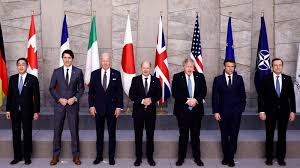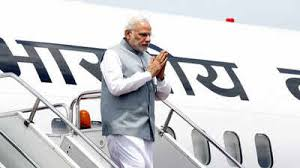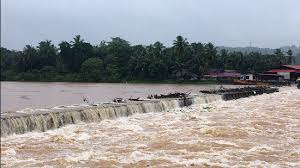High Stakes Diplomacy: G7 and NATO Summits to Confront a World in Turmoil
Editor
Jun 20, 2025
min read
3 views

In a month marked by escalating geopolitical crises and economic uncertainty, the world will turn its attention to two crucial diplomatic gatherings: the G7 Leaders' Summit in Kananaskis, Canada, and the North Atlantic Treaty Organization (NATO) Summit in The Hague, Netherlands. These back-to-back meetings will see the leaders of the world's most powerful democracies grapple with a formidable agenda, from the raging conflict between Israel and Iran and the ongoing war in Ukraine to the specter of a global economic slowdown and the long-term challenge of climate change.
The G7 summit, hosted by Canada, will bring together the leaders of Canada, France, Germany, Italy, Japan, the United Kingdom, and the United States, along with representatives from the European Union. The idyllic mountain setting of Kananaskis will provide a stark contrast to the grim realities on the agenda. Topping the list of priorities will be the urgent need to de-escalate the crisis in the Middle East. The G7 leaders are expected to issue a strong, unified call for restraint and to explore diplomatic pathways to resolve the conflict. They will also likely discuss further sanctions against Iran and measures to bolster the security of their regional partners. The war in Ukraine will also feature prominently. With the conflict now well into its third year, the G7 will look to reaffirm its unwavering support for Kyiv, discussing new packages of financial and military aid and ways to further isolate Russia economically.
Beyond the immediate crises, the G7 will also have to address the darkening global economic outlook. With the World Bank and OECD forecasting sluggish growth and persistent inflation, the leaders will discuss strategies to promote economic resilience and stability. This will likely involve a renewed push for international cooperation on trade, a rejection of rising protectionism, and a discussion on how to manage the risks posed by volatile energy markets. The summit will also be an opportunity to take stock of progress on climate goals and to discuss how to accelerate the transition to a green economy, a task made more challenging by the current economic headwinds.
Just days after the G7 concludes, the focus will shift to The Hague for the NATO Summit. Hosted by the Netherlands for the first time, this gathering of the 32-member military alliance comes at a critical juncture for European security. The war in Ukraine has fundamentally reshaped NATO's strategic calculus, prompting the alliance to undertake its most significant reinforcement of collective defense in a generation. The summit in The Hague will be an opportunity to review and strengthen these defense plans, ensuring that the alliance is prepared for any potential aggression.
One of the key topics of discussion at the NATO summit will be the issue of defense spending. The alliance has set a target for each member to spend at least 2% of its GDP on defense, a goal that has taken on new urgency since Russia's full-scale invasion of Ukraine. While many members have increased their defense budgets, some are still falling short of the target. The summit will see a renewed push for all allies to meet their commitments and to invest in the capabilities needed to deter and defend against all threats.
Another critical issue on the NATO agenda will be the alliance's long-term strategy towards Russia. The summit is expected to reaffirm NATO's view of Russia as the most significant and direct threat to Allied security. The leaders will discuss how to maintain pressure on Moscow while also keeping channels of communication open to manage the risk of escalation. The summit will also likely address the challenges posed by China's growing military ambitions and its deepening partnership with Russia, a topic of increasing concern for the alliance.
The NATO leaders will also have to contend with the internal challenges facing the alliance. The prospect of a potential return of Donald Trump to the White House has raised questions about the future of US commitment to NATO, a cornerstone of European security for over 75 years. While the current US administration has been a staunch supporter of the alliance, the 'America First' rhetoric of the past has left a lingering sense of unease among many European allies. The summit will be an opportunity for leaders to reaffirm their commitment to the principle of collective defense and to demonstrate the enduring value of the transatlantic bond.
Ultimately, the success of both the G7 and NATO summits will be measured not by the communiqués they issue, but by their ability to forge a united front in the face of a daunting array of challenges. The world is looking to these leaders for a clear signal that the world's democracies are capable of rising to the occasion, of defending their values, and of working together to build a more peaceful and prosperous world. The stakes could not be higher. In a world in turmoil, the need for effective, principled leadership has never been greater.
Editor
League Manager Editorial Team





Leave a Comment